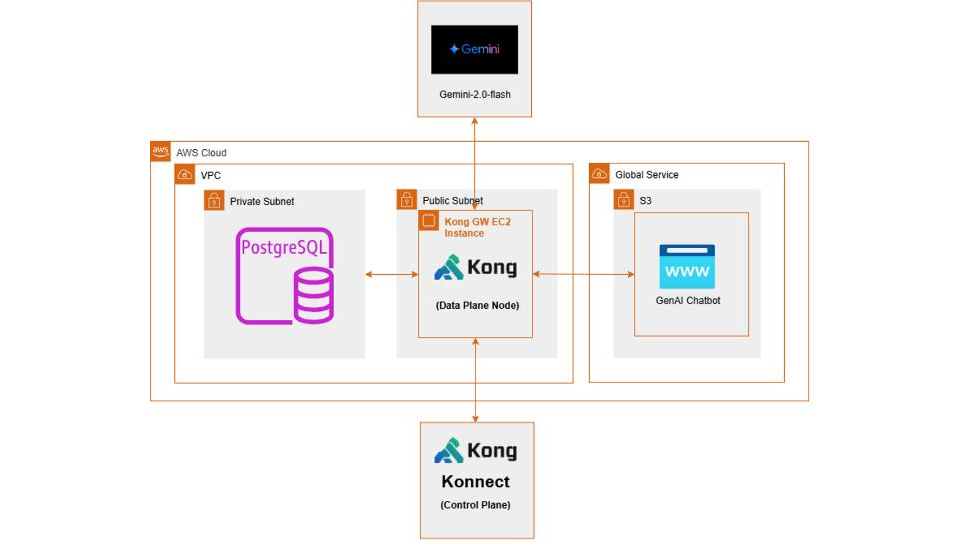🚧 The challenge: Scaling GenAI with governance
While building a GenAI-powered agent for one of our company websites, I integrated components like LLM APIs, embedding models, and a RAG (Retrieval-Augmented Generation) pipeline. The application was deployed using a Flask API backend and secured with API keys.
However, post-deployment, several operational challenges emerged:
- Escalating LLM usage costs
- Security risks from exposed API keys and prompt injection
- Limited observability into prompt flows, token usage, and latency
- Difficulty in maintaining and scaling the API infrastructure
It became clear that while the GenAI logic was sound, the API layer lacked enterprise-grade governance. That’s when I turned to Kong Gateway, specifically its AI Gateway capabilities.
🤖 Why Kong Gateway for GenAI?
Kong isn’t just a traditional API gateway; it now offers a dedicated AI Gateway designed to meet the unique demands of GenAI workloads. Here’s what makes it ideal:
- AI Manager: Centralized control plane for LLM APIs
- One-Click API Exposure: Secure and governed API publishing
- Secure Key Management: Store secrets in Kong Vault
- Prompt Guard Plugin: Prevent prompt injection attacks
- Semantic Routing: Route prompts based on intent/context
- RAG Pipeline Simplification: Offload orchestration to the gateway
- Caching & Optimization: Reduce token usage and latency
- Observability & Analytics: Monitor usage, latency, and cost
- Rate Limiting & Quotas: Control overuse and manage budgets
- Future-Ready: Support for multi-agent protocols like MCP and A2A
These features allowed me to shift complexity away from the backend and focus on GenAI logic.
🧱 Architecture overview
This architecture, built on AWS, leverages Kong Gateway to securely manage interactions between internal services and external LLM providers. The environment described reflects my development setup, including AWS services and supporting technologies.
For production deployments, I recommend evaluating and adopting a more robust technology stack and configuration to ensure enhanced security, compliance, scalability, and high availability.
🔄 Challenge vs. solution matrix











